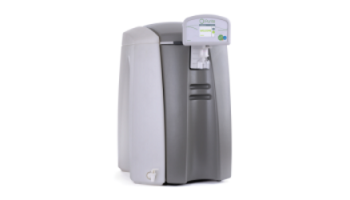
5 Water Purification Tips in Line with Sustainability
5 Water Purification Tips in Line with Sustainability
WolfLabs has committed to reducing Scope 1, 2, and 3 emissions by 90% by 2040 from a 2024 baseline year, using a science-based targeting approach. As many other companies look at ways they can be more sustainable, we have four tips on how to run your water purification system more sustainably.
- Reduce Water Waste with Smart Recovery Systems - Traditional reverse osmosis (RO) systems can generate a high proportion of wastewater. However, new technologies, such as Evolutive Reject Adjustment (E.R.A.®), optimise water recovery, reducing water usage by up to 50%. This not only conserves precious natural resources but also lowers utility costs. For high-use facilities, that could equate to saving more than 1,200 litres of water per day over several years.
- Save Energy with Modern Purification Systems - Energy consumption is often the largest contributor to a system’s carbon footprint. Upgraded purification units can deliver up to 35% energy savings, thanks to optimised components, smart hibernation modes, and electrodeionisation modules. Reducing electricity usage means fewer carbon emissions, helping labs and organisations meet their sustainability targets.
- Eliminate Hazardous Waste from Water Treatment - Older purification methods often rely on chemicals and mercury-based lamps, both of which require special handling and disposal. Sustainable alternatives now use ech2o® UV lamps, which are mercury-free, compact, and last longer. In addition, electrodeionisation (EDI) technology continuously regenerates ion-exchange resins without chemicals, cutting out hazardous waste streams altogether.
- Cut Down on Plastic and Packaging Waste - Plastic pollution is a growing concern worldwide. Forward-thinking purification systems are now designed with 33% less plastic in cartridges, lighter components, and eco-friendly packaging made with certified sustainable materials. Choosing such systems not only reduces plastic waste but also supports responsible supply chains.
- Use High Recovery RO Loops for Benchtop Systems - Sustainability isn’t just for large-scale systems. On a smaller scale, benchtop purification units can also make a big difference when fitted with reverse osmosis high recovery loops. These designs recycle and recover more water during purification, ensuring less waste and higher efficiency even in compact systems. When combined with smart practices, they offer an effective way to achieve sustainable water purification in smaller labs or workplaces.
If you require any further help with these tips, please Email Us.
Click Here for energy saving tips on other product categories
